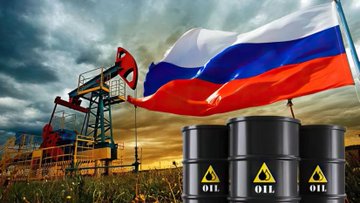Shibh a Aljazeera Net | Economy
The Russian government is working to create a massive oil entity that would become the world’s second-largest crude oil producer after Saudi Aramco, essentially nationalizing Russia’s energy sector.
This plan involves merging the state-backed company Rosneft Oil with Gazprom Neft and Lukoil, potentially creating an entity with oil production three times that of U.S.-based ExxonMobil, according to a report by the American newspaper The Wall Street Journal.
The newspaper noted that in recent months, discussions have taken place between executives and government officials, though no agreement has been reached yet. However, establishing such a Russian entity would produce three times the output of ExxonMobil, which is considered the largest international trader in oil and natural gas.
The Project Reality: Between Denial and Secrecy
There are obstacles to implementing this Russian plan, including opposition from some executives at Rosneft and Lukoil, as well as the need to raise funds to pay Lukoil shareholders.
A spokesperson for Rosneft (headquartered in Moscow and mostly owned by the Russian government) stated that this information is incorrect but declined to answer further questions. Meanwhile, a spokesperson for Lukoil told the newspaper that the company and its shareholders are not involved in any acquisition negotiations, as such an arrangement would not be in the company’s interest.
In October, the Kremlin said it could not confirm reports that the Russian energy minister had proposed nationalizing the energy sector.
There is a possibility that the plans may not be finalized and could be canceled. The Washington-based Energy Platform stated that regardless of whether this agreement goes through, the mere discussion suggests Russia’s ongoing efforts to strengthen its oil entities. These oil companies are the primary source of funding for the national budget (accounting for 70% of revenue before the war) as Russia faces Western sanctions imposed since the start of the Ukraine war in February 2022.
These efforts reflect Russia’s desire to shield itself from unprecedented sanctions, which have not prevented Russians from exporting their gas products to European countries. Russian imports to Europe continue to increase despite the sanctions.
